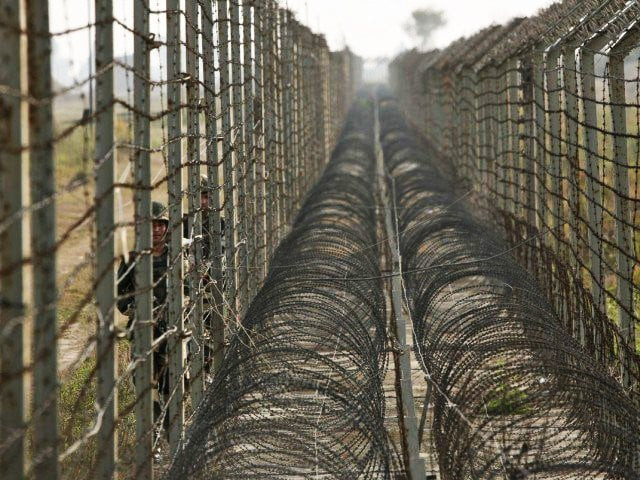LoC skirmishes: Pakistan, India ‘cannot afford to escalate tension’
EU official urges nuclear-armed neighbours to start dialogue

EU official urges nuclear-armed neighbours to start dialogue. PHOTO: AFP
The statement from Gunnar Wiegand, Managing Director, Asia and the Pacific at the EU, came on the day when Indian forces targeted a van in the Neelum valley, killing scores of unarmed civilians. The EU official is in Pakistan to discuss bilateral ties between the EU and Pakistan as well as other regional issues.
'EU concerned over rights violations in occupied Kashmir'
Speaking to a select group of journalists, Wiegand, who flew in from New Delhi, regretted spike in tensions along the Line of Control (LoC).
Officials in Pakistan are concerned that despite India’s belligerence, powerful countries and organisations in the world are acting as mere spectators.
Responding to the criticism, the EU official said it was difficult for a third party or country to comment on the current tensions along the LoC.

“Our media and our observers don’t have access to the area,” Wiegand said while justifying the somewhat muted response by the outside world to the current situation.
However, he said the EU was encouraging both sides to start a dialogue. He even suggested that the local Kashmiri population should be included in this process – a prospect that will not go down well with New Delhi.
In a balancing act, Wiegand said the EU was also concerned over terrorist attacks -- including the Uri attack in which 19 Indian soldiers were killed.
As clashes intensify, UN military observers visit LoC
But despite current spike and frequent exchanges of fire along the LoC, the EU official cautioned both the countries to avoid increase in tensions.
“You cannot afford to escalate tension, and I just came from New Delhi. I sense it there, and I sense it here. That’s what we hope will prevail,” he further said.
Meanwhile, the seventh meeting of the Pakistan-EU Joint Commission was held in Islamabad. The Pakistani side was jointly led by Foreign Secretary Aizaz Ahmad Chaudhry and Economic Affairs Division Secretary Tariq Bajwa. The EU delegation was led by Gunnar Wiegand.
A joint statement issued after the meeting said that the two sides appreciated the continued strengthening of the Pakistan-EU relations.
They expressed satisfaction at the progress made in the implementation of the Pakistan-EU five-year engagement plan, including the holding of the Third Pakistan-EU Political Dialogue and the Strategic Dialogue in Brussels earlier this year.
In this respect, the two sides welcomed the decision to further elevate their mutually beneficial partnership under the new Strategic Engagement Plan.
“Every effort will be made to finalise the new plan by the middle of 2017, for approval by the next Pakistan-EU summit,” the statement said.
The EU side reiterated its strong support for democratic institutions, electoral reforms in time for the next elections, rule of law, human rights, economic development and poverty reduction in Pakistan.
8 killed as Indian forces target passenger bus near LoC
Both the sides also agreed to continue cooperation in the spheres of counterterrorism, security and defence, disarmament and non-proliferation. They welcomed the holding of the second Dialogue on Disarmament and Non-Proliferation, as well as the fifth round of the Counter-Terrorism Dialogue in April 2016 in Brussels.
The meeting discussed the economic reform programme of Pakistan, and the EU welcomed the progress made in this respect.
Published in The Express Tribune, November 24th, 2016.






1733130350-0/Untitled-design-(76)1733130350-0-208x130.webp)












COMMENTS
Comments are moderated and generally will be posted if they are on-topic and not abusive.
For more information, please see our Comments FAQ